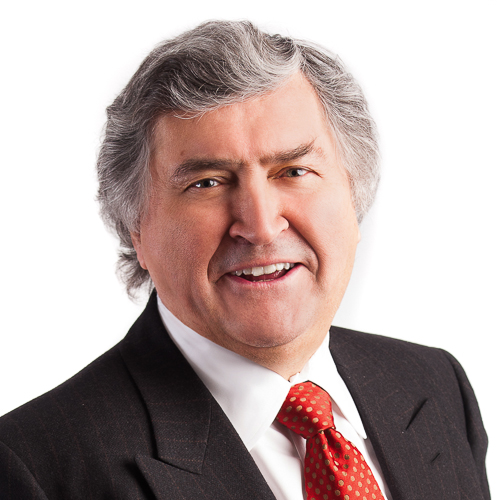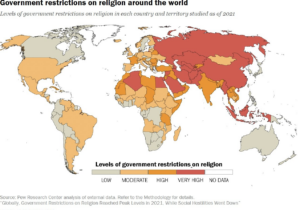In a case concerning a Christian university, the Supreme Court of Canada issued a ruling on June 15 that is a major blow to religious freedom. The decision will affect not only Canada but also America, and may well be an indicator of future trends in the United States.
The case concerns Trinity Western University (TWU) in British Columbia, the largest private Christian university in the country which in 2012 had proposed starting a law school. The court ruled that because TWU upheld a traditional Christian view of marriage its law school graduates may be barred from legal practice.
At its founding in 1962, the university, like many other Christian institutions in Canada and the US, adopted a “community covenant,” a code of conduct for its faculty, staff, and students. Part of the covenant states that members of the community must “voluntarily abstain from the following actions…[including] sexual intimacy that violates the sacredness of marriage between a man and a woman.”
This led to problems earlier when TWU wanted to begin a teacher training program. The British Columbia College of Teachers refused to accredit the program because of the covenant. The case eventually went to the Supreme Court of Canada, which in 2001 decided 8-to-1 that the British Columbia College of Teachers could not simply consider “equality rights” without regard to religious freedom. It stated that “British Columbia’s human rights legislation accommodates religious freedoms…by allowing religious institutions to discriminate in their admissions policies on the basis of religion.” The court also added that “it is difficult to see how the same logic would not result in the denial of accreditation to members of a particular church. The diversity of Canadian society is partly reflected in the multiple religious organizations that mark the societal landscape and this diversity of views should be respected.”
Despite this clear and sweeping precedent, when the university announced it would like to form a law school, there was an outcry and a concerted campaign to block the effort.[1] In June 2012, TWU filed its proposal with the Federation of the Law Societies of Canada (for Americans, these are analogous to state bar associations). The Council of Canadian Law Deans, the heads of law schools, then wrote a letter to the federation stating that TWU discriminates against gays and others and that the proposal needed to be carefully vetted. The federation then appointed a special committee to review the implications of any TWU law school. After the committee found in the university’s favor, holding that there was “no public interest reason to exclude future graduates of the program from law society bar admission programs,” the Federation of Law Societies gave its approval to TWU’s proposal.
With this verdict, most of the provincial law societies across Canada approved accreditation of graduates from the proposed law school. However, the Law Society of Upper Canada (Ontario) and the Nova Scotia Barristers’ Association said it would not accept such graduates. Subsequently, the Law Society of British Columbia voted to reverse its earlier decision to grant accreditation and requested that the British Columbia government revoke the law school’s accreditation on the grounds that TWU discriminated against unmarried couples and homosexuals. The government then revoked its prior approval pending the outcome of court cases.
There were conflicting decisions by the supreme courts in the provinces, so the matter again ended up in the Supreme Court of Canada. Despite its 8-to-1 decision in 2001 in a remarkably similar case involving TWU, the court abandoned this strong precedent and instead held that the decision to deny accreditation to TWU law school graduates was reasonable because promoting equality required equal access to the legal profession, and that supporting diversity within the bar and preventing harm to LGBTQ law students were valid means to pursue the public interest.
The majority also held that the covenant necessarily restricts gays who feel they have no choice but to attend TWU’s law school, and that such people would have to deny who they are while in the school. “Being required by someone else’s religious beliefs to behave contrary to one’s sexual identity is degrading and disrespectful.”
The majority also stated that the Law Society of British Columbia’s decision to reject TWU’s application did not limit religious freedom to a significant extent because the covenant was not absolutely required to study law in a Christian environment. They deemed that studying law in an environment infused with the community’s religious beliefs was merely a preference, not a necessity.
Apparently, for the court, despite the fact that there are 18 secular English common law schools in Canada with no faith-based alternative, a decision by a gay person to attend Canada’s only committed Christian law school could be a necessity, whereas maintaining a Christian code of conduct in that law school would merely be a preference. The law school must therefore be required to conform to the views of those who may wish to attend.
This decision can have far-reaching effects. The court’s principles, if they may be given such a description, could also be applied to TWU’s teacher training programs and, indeed, eventually to any program that requires external professional accreditation. Then it will be a short step to apply it to undergraduate programs, with the result that TWU must abandon its covenant or suffer de-accreditation. This could also be applied to other similar institutions, Christian or otherwise.
This decision has effects that go beyond Canada. In the arguments among the conflicting bar associations, it was pointed out that, if law graduates from TWU were not acceptable, then graduates from American universities such as Baylor and Brigham Young may not be either. If these institutions adhere to principles analogous to TWU, then their graduates could also be restricted from Canadian professions. American Christian (and Muslim, and other) universities need quickly to examine these issues before they are blindsided when their students’ accreditations are challenged.
There could be many other effects besides these US spillovers. The decision indicates the view of the human person underlying current liberal legal trends and could be a harbinger of similar developments in the US. With the introduction of a Charter of Rights and Freedoms in 1982 under then Prime Minister Pierre Trudeau, Canadian legal patterns have become more like those in America. The courts have taken on an increasing role as the principal arbiters of central political issues, particularly those concerning social and moral questions, and Canada’s more liberal caste has taken them in a more liberal direction. Recent Canadian events may reveal something about our possible future.
—
Paul Marshall is Wilson Professor of Religious Freedom at Baylor University, a senior fellow at the Hudson Institute and the Religious Freedom Institute, and a contributing editor of Providence.
Photo Credit: Bob Kuhn, president of Trinity Western University, speaking at the Supreme Court of Canada after the oral arguments in December 2017. By Trinity Western University.
[1] I have drawn heavily on Barry Bussey’s analysis.







 Live in the DC area? Sign-up for Providence's in-person events list!
Live in the DC area? Sign-up for Providence's in-person events list!